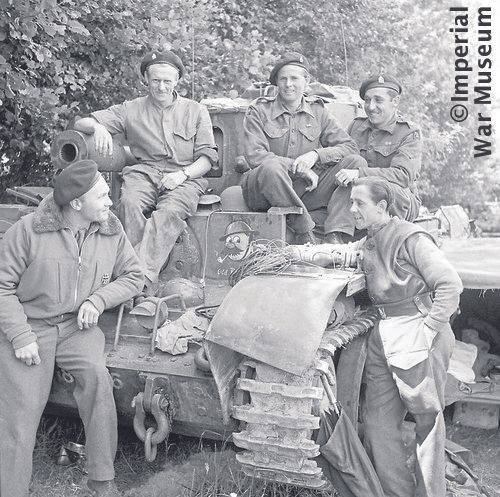Neither drizzle nor dull skies dampened the celebrations on 8 May 1945. Victory in Europe had finally put an end to years of suffering, separation, and death. The war was over.
Crowds euphoric with joy swarmed Buckingham Palace. There were hugs and kisses, smiles and laughter, dancing and singing. For the first time since war broke out in 1939, London’s skies lit up with fireworks and floodlights. The Queen – then a princess – reflected that ‘it was one of the most memorable nights of my life’.
The BBC interrupted its programming to announce a public holiday. At 3 p.m. Winston Churchill broadcasted on national radio, and later King George VI spoke to the nation.
Throughout the UK there were street parties and parades. Similar celebrations took place in Moscow, Rome, Paris, and elsewhere. Bonfires were topped with effigies of Adolf Hitler. Red, white, and blue material could be purchased without ration coupons so that bunting could brighten the streets. Pubs were full. St Paul’s Cathedral had ten consecutive services of thanksgiving, each packed with thousands of worshippers. Churches across the land had congregations giving thanks to God.
But for many, there were mixed emotions after years of war. Millions had endured privation, destruction of property, and bereavement of loved ones. VE Day was a time to reflect.
Moreover, news coming out of Europe was shocking the nation and vindicating the military action against Germany. After seeing a concentration camp, General Eisenhower said, ‘I never dreamed that such cruelty, bestiality, and savagery could really exist in this world. It was horrible.’

VE Day was the culmination of an historic week. On 30 April, allied troops had discovered the horrific truth of the Nazi concentration camps. Soviet, British, and American soldiers had liberated Belsen, Treblinka, and Auschwitz, where political and religious ‘undesirables’ had been murdered and brutalised. On the same day Hitler committed suicide.
On 4 May, in a tent in Luneburg Heath near Hamburg, Field Marshall Montgomery received the first surrender of German forces. Three days later, Germany surrendered unconditionally to the Allies at 2.41 a.m. in a little red schoolhouse in Reims in France.
Now that years of war were over, families could reunite and the work of rebuilding both a nation and a continent could commence. Wounds could begin to heal. The heart cry of the nation was that this must never happen again.
Nevertheless, a visit to the National Arboretum in Staffordshire is evidence that war and savagery did not end with VE Day in 1945.
Why do wars persist? The question is raised in the Bible: ‘Where do wars and fights come from among you? Do they not come from your desires for pleasure that war in your members? You lust and do not have. You murder and covet and cannot obtain. You fight and war. Yet you do not have because you do not ask… Draw near to God and he will draw near to you. Cleanse your hands, you sinners; and purify your hearts you double-minded… Humble yourselves in the sight of the Lord, and he will lift you up’ (James 4).
War on a big scale begins with war in the heart of each one of us. The root cause of war – on any scale – is rebellion against God. Selfishness is the root of all conflicts. God created the world in perfect harmony, but when sin came in, conflict followed. Worldwide outbursts of evil are an explosion of the small-scale scandal of sin within each of us.
War and victory were also seen 2,000 years ago. Humanity’s fight against God came to a head when Jesus was crucified. The savagery of the time was awful. People did their worst against Jesus – he who had come to seek and save lost humanity. The brutality of the cross and the suffering endured were horrendous. All hell was let loose when Jesus was nailed to a cross at Calvary. There, God took all the wickedness of the world, from the beginning of time to its end, and laid it on Jesus.

His physical suffering was intense. But as he carried and paid for the sin of the world, his spiritual sufferings were immense. As he bore our sin in his own body on the cross, he cried, ‘My God, my God, why have you forsaken me?’ He was forsaken by God so that we might be forgiven and never be forsaken by him.
We rightly remember those who have given their lives for our freedom. We remember because people matter. It is right too to remember that Jesus died for us that we might know true freedom and forgiveness. Today, Jesus who rose from the dead is alive to welcome us and bring us into friendship with God that lasts beyond time.
In God’s word to humanity, he speaks of heaven and hell. Heaven is not a reward for doing good, but a gift which Jesus purchased and offers to all. Hell is for those who reject God’s forgiveness and choose their own way.
The Bible also speaks of a day when Jesus will return to reign in righteousness as Lord and King. In that day, God ‘shall judge between nations, and shall rebuke many people; they shall beat their swords into ploughs, and their spears into pruning hooks; nation shall not lift up sword against nation, neither shall they learn war anymore’ (Isaiah 2:4).
As we commemorate VE Day, let us also thank God for coming into our world to pay the price of our warring against him. Let us trust him, surrendering to him as Lord and Saviour.







